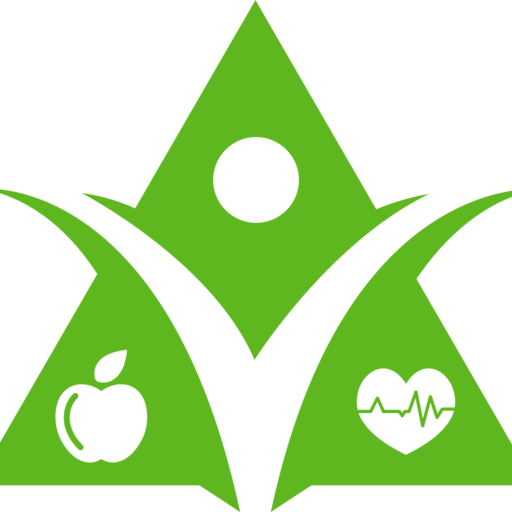Healthy Nutrition Provides the Best Communication Between the Body and the Brain
The microbiome is the population of microorganisms that include bacteria, viruses, and fungi. They break down and make good use of the food that we eat and cannot digest such as fibers and polyphenols compounds. Fibers are fermented by the gut microbiome, this fermentation breaks down the fibers into metabolites that we can use, such as vitamins, short-chain fatty acids, and neurotransmitters such as serotonin, dopamine, and norepinephrine. The microbiome also trains our immune system.
The vagus nerve is the tenth nerve. It takes the name from the Greek vague, vagabond. It is a very long nerve; it extends from the voice box and connects to all our major organs and ends in our guts. The vagus nerve gives the brain all the information about what is happening in our body so that the brain can make the best decisions for us, and it also helps us with managing our emotions. Unfortunately, rates of depression are going up and the rate of medications created to treat depression has increased. We know that 50% of people that are depressed continue to experience depression and 30% do not respond to medications.
Epidemiology studies support that the more we adhere to a whole food diet the more we reduce the chance of developing depression later in life, possibly because lack of fibers in our diet has an impact on immune function and inflammation. The lack of brain nutrients such as vitamin B complex, omega 3 fatty acids, the impact of blood sugar spikes and the effects on cortisol production all have a negative effect on brain mood. Serotonin is one of the neurotransmitters that help us to give a sense of well-being. The synthesis of serotonin requires, besides tryptophan, other nutrients such as b6, B9. People that improve their diet have an improvement in the symptoms of depression. Of interest is the Smiles trial in Australia that shows a positive effect of mediterranean diet. patients were in remission from depression after 12 weeks of consuming a prevalent Mediterranean diet. Stress also impairs the production of serotonin because cytokines are released during stress and cytokines interfere with the tryptophan pathway creating instead quinoline acid in the brain which is actually neurotoxic.
The brain is 2% of body weight but uses 25 % of the total energy at rest. It requires micronutrients to make dopamine; b12, vitamin c to make serotonin, and choline from eggs to make acetylcholine. When the body is stressed, the brain needs more micronutrients. A healthy diet and some dietary supplements improve stress management. Julia Rockledge in New Zealand has researched the use of large spectrum micronutrients during stressful situations. People that received large spectrum of micronutrients immediately after a mass shooting were less likely to develop PTS and had less reported stress and anxiety.
The number of fatty acids present in the pregnant mother is very important at conception, during gestation, and during breastfeeding. The uptake of Docosahexaenoic acid (DHA), an omega-3 fatty acid that is found along with eicosapentaenoic acid (EPA) in cold-water fish, increases up to the age of 2 and then stabilizes. DHA plays a key role in the development of
The recommendation is for people to consume fish at least twice per week and possibly to have one fatty fish such as mackerel and herring. We know that the average adult eats fish less than once per month and less than 5% of children get an adequate amount of fish. With rapid brain development, the lack of micronutrients has created children that are progressively unwell.
The symbol of Christianity is the fish which is a symbol of calmness. Omega 3 has helped our brain to grow and develop well. We are now struggling with developing healthy and happy brains because of a lack of omega-3 fatty acids. The foundation of a healthy brain is a healthy diet.
Eating more fruits and vegetables improves Attention Deficit Hyperactivity Disorder (ADHD) symptoms in children, according to a study published online in Nutritional Neuroscience. Children who ate more fruits and vegetables had less severe symptoms of inattention than children who ate more foods higher in saturated fat, sodium, and added sugars.
As life expectancy lengthens around the world, the incidence of dementia and cognitive decline is also increasing. The number of people affected by dementia is growing exponentially, with an estimated 50 million people diagnosed worldwide today and 82 million predicted to be diagnosed by 2030.
Alzheimer’s disease is the most common disease of aging, affecting as many as 70 million people worldwide. Findings from a 2017 study suggest that omega-3 fatty acids improve brain function and structure in older adults.
Omega-3 fatty acids are essential nutrients. Found in both plants and fatty fish, they influence cell membrane integrity, affect the function of membrane-bound cellular receptors, and participate in pathways involved in the biosynthesis of hormones that regulate blood clotting, arterial function, and inflammation. The fish-sourced omega-3 fatty acids, eicosapentaenoic acid (EPA) and docosahexaenoic acid (DHA), both play important roles in brain health, but DHA in particular
A study involving 65 cognitively healthy adults between the ages of 50 and 75 years, showed that the participants that received omega 3 supplementations performed better on tests of executive function and exhibited improved white matter microstructural integrity and increased gray matter volume in their brains. In addition, their brain-derived neurotrophic factor increased, and their peripheral insulin decreased.
|



